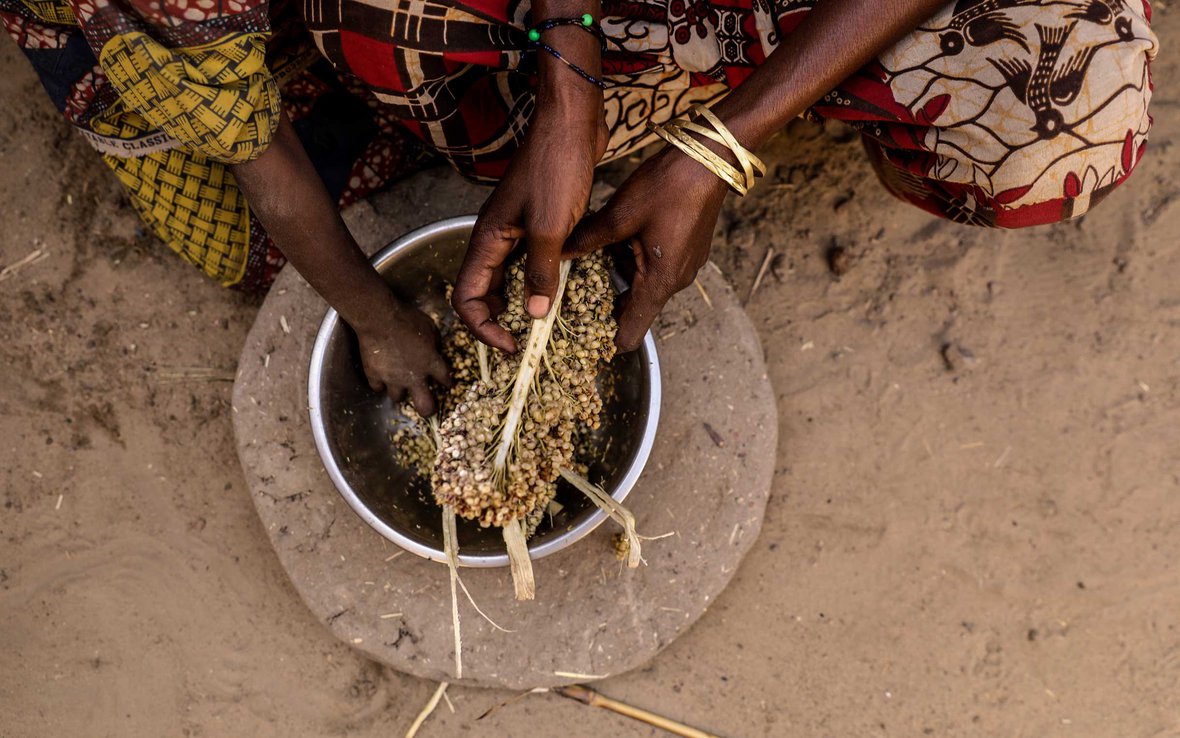Proverb of the Week: The hunger that has hope for its satisfaction does not kill.
Agụọ nwere nchekwube/olịleanya
a dịghị egbu egbu. (Igbo, Nigeria)
Traditionally, the Igbos
are farmers, with the farming season (the period the seedlings had been planted
and the crops from the previous harvest consumed) lasting between about five to
seven months, exposing the people to hunger. The proverb becomes central in
encouraging hope and endurance until the next harvest when food will be in
abundance; therefore, it teaches that no condition is impossible to bear with
determination and hope for a brighter future.
But having hope and
endurance implies working hard, without which there might be no positive and
tangible results. From a religious perspective, hope without hard work is
death; not even God or a shepherd can provide for the sheep that desert the
pasture. Heaven helps those that help themselves.
From our present-day
situation in Africa and globally, we are confronted daily by enormous
challenging – and sometimes precarious – situations. Think of unemployment,
hunger, war, epidemic, illnesses, and family conflicts. Our survival from those
social malaise has much to do with our attitude towards them. Without hope,
endurance and determination, we can hardly overcome difficulties. However, if
we believe that no condition is permanent and confront the obstacles based on
that mindset, rather than being lazy, we are on the right path to survival.
Often human beings prefer a quick solution to
their problems, but a house built on a shallow foundation hardly lasts long or
withstands turbulence. Biblically, many years ago, Pontius Pilate asked the
crowds who gathered in his palace whom he should release between Jesus and Barabbas,
the thief; the people shouted: “Barabbas, the thief.” Today, two thousand years
later, we are still chasing Barabbas and in love with the thieves in the form
of our leaders, who have mercilessly stolen our future. Worse, we still
accommodate, worship and re-elect these shrewd leaders and religious marauders
rather than taking our destiny into our hands.
Aren’t we building without any foundation?
Such a reckless decision comes at the detriment of the uncertainty of the
future, resulting from choosing an artificial solution over surgical therapy
for the problems. In a situation where we prefer a get-rich approach to issues
rather than a work-hard mentality, we face an existential threat. However, if
we genuinely believe in future and what it holds for us, the best attitude
becomes hope, endurance and hard work. Hence the hunger that has hope for its
satisfaction does not kill.
Photo: Oxfam (https://www.oxfamamerica.org/explore/stories/what-is-famine-and-how-can-we-stop-it/)
Njaa ambayo ina
matumaini ya kuridhirisha, haiuwi, (Swahili)
La faim qui a
l’espoir de sa satisfaction ne tue pas. (French)
The
hunger that has hope for its satisfaction
does not kill.
(English)
The Igbo tribe, which
occupies the Southeastern part of Nigeria, is known for their hard work,
endurance and persistence, especially in the face of impediments and other
social deterrents. It is, therefore, no coincidence that the above proverb is
shared amongst the Igbos who use the saying to inculcate the spirit of hope and
endurance amongst themselves.

